Overcoming Kindness Barriers

Despite the universal importance of kindness, obstacles from various internal and external factors often hinder our ability to be kind. In this post, we will discuss some of the challenges that can make it difficult for us to be kind and caring in our daily lives, including fear, societal pressures, cultural expectations, and religious teachings. The journey to kindness is not easy, but by identifying these barriers, we can find ways to overcome them and create a more nurturing environment for kindness to flourish and help make the world a more caring, compassionate, and understanding place.
Defining Kindness
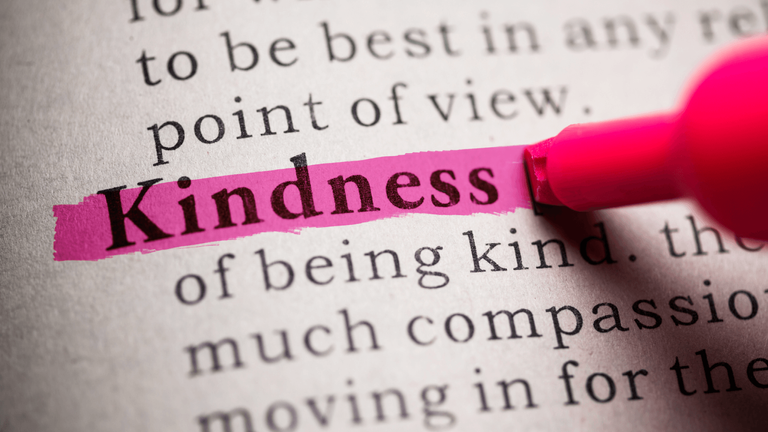
Kindness goes beyond mere politeness. It involves doing things because you genuinely care about others' well-being. It means choosing to make a positive difference in someone's life, whether through a smile, a helping hand, a thoughtful gesture, or a kind act. Real kindness is about feeling empathy and expressing it through actions.
The Kindness Paradox
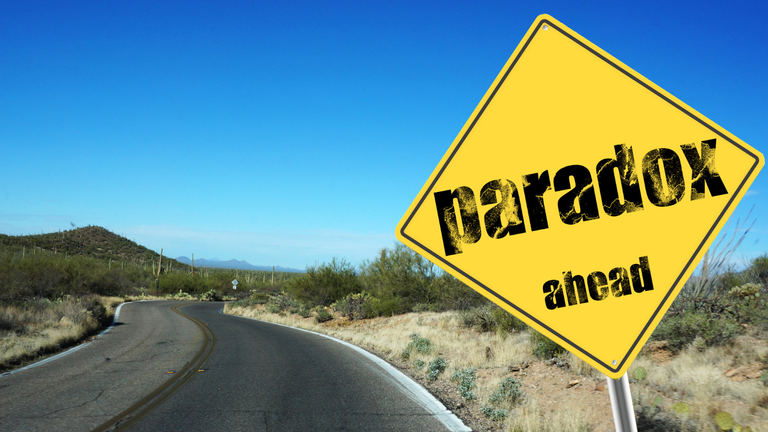
The Kindness Paradox refers to the fact that being kind to others not only benefits them but also brings positive outcomes for us. It's like a cycle of goodness where everyone involved wins. When we show kindness to someone else, it creates a ripple effect, leading to more acts of kindness in return. This positive ripple of energy can improve relationships, boost happiness, and create a sense of community and connection. The more kindness we give, the more we receive in return, making the world a better place for us all.
Section 1: Personal Barriers to Kindness: Understanding the Stress Trap
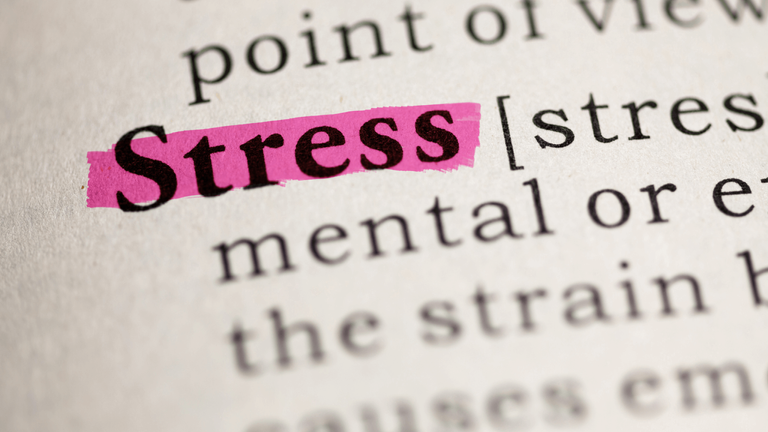
When we are stressed or afraid, it's hard to be kind to others. This is called the "stress trap." Stress can make it tough to show empathy and kindness because we're too focused on our own worries. It affects us physically and emotionally, draining our emotional energy. To break free from this trap, we need to recognize when stress is overwhelming us and take steps to manage it. This can include things like mindfulness, exercise, talking to loved ones, or getting professional help. By taking care of ourselves and reducing stress, we can be more kind and understanding towards others, even when things are difficult.
The Impact of Stress on Empathy

Research shows that when we are stressed, our attention narrows to focus on survival. This can make us more self-centered, especially in uncertain or anxious situations. Stress reduces our ability to empathize with others, affecting our communities. Sleep problems caused by stress can impact both our emotional and physical health, leading to issues like obesity and heart disease.
Fear: A Powerful Deterrent

Fear can stop us from being kind. We might fear rejection, looking weak, or being used. These fears come from our own insecurities and past experiences. When we're scared of being open with others, it's hard to be kind. This fear can get in the way of forming connections and being genuinely kind. It can also affect our happiness and relationships.
Building Kindness Muscles

To overcome personal barriers to kindness, especially those rooted in stress and fear, it's helpful to practice mindfulness, self-compassion, and stress management. Being mindful helps us to be present and fully engaged with others, allowing more authentic connections. Being aware of our biases and perceptions can help us handle stress and approach situations with empathy and kindness.
Empathy and Compassion Fatigue
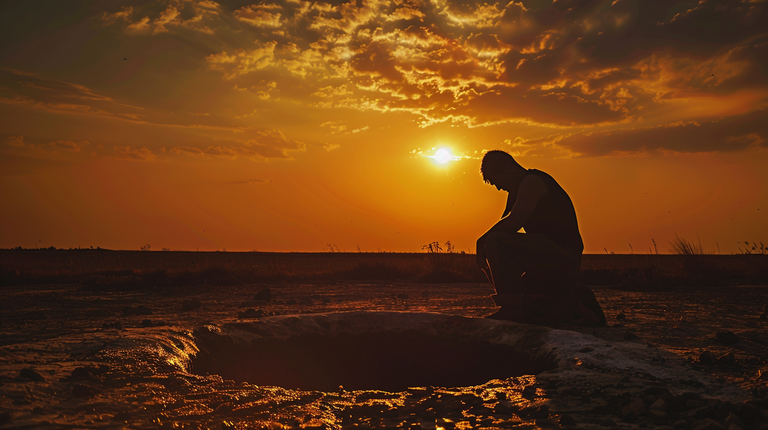
Understanding the differences between compassion fatigue and empathy fatigue is crucial for those who help others in distress. Compassion fatigue results from frequent exposure to suffering, causing feelings of being overwhelmed and less empathetic.
On the other hand, empathy fatigue occurs when we absorb too much of other people's emotional pain, leading to exhaustion. Recognizing the signs, such as feeling overwhelmed and struggling to show empathy, is vital.
To prevent these conditions, it's important to set boundaries, seek support, and prioritize self-care through activities like exercise and meditation. By being proactive in identifying and addressing these issues early, we can safeguard our emotional well-being and foster a more supportive environment for ourselves and those around us.
- Compassion fatigue and empathy fatigue affect those helping others in distress.
- Compassion fatigue stems from consistent exposure to suffering.
- Empathy fatigue arises from absorbing too much emotional pain from others.
- Signs include feeling overwhelmed and struggling to show empathy.
- Prevention strategies include setting boundaries, seeking support, and prioritizing self-care.
Let's remain vigilant in recognizing the signs of compassion and empathy fatigue to ensure our well-being and that of those we aim to help.
Section 2: Society and Kindness
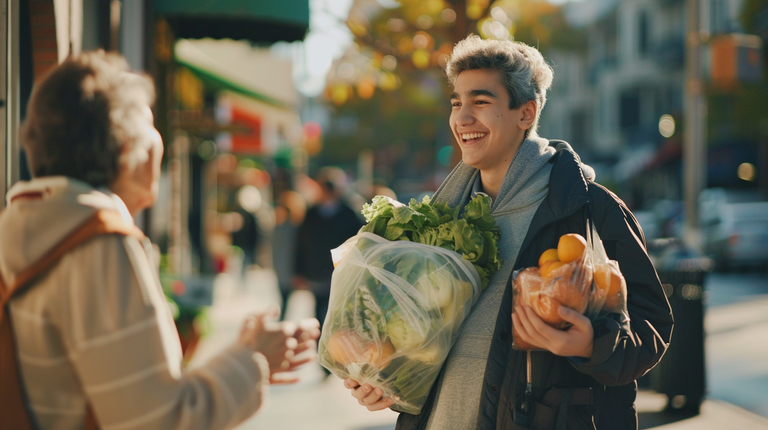
In many parts of our lives, focus on competition and self-centeredness can make it hard to be kind. Society's norms and expectations can stop us from helping others, despite our natural desire to do so. This section looks at how things like academic pressure, seeing others not being kind, and societal values can stop us from being kind and why it’s important for us to challenge these norms and spread more empathy and compassion around us.
The Competition Mindset

Our society often tells us that to succeed, we need to be the best and put ourselves first. While aiming for excellence can help us improve, it may make us forget about helping others along the way. Participating in competitions, like challenges to save energy or support charitable causes, can be enjoyable and make a positive impact. However, these short-term contests may not always promote a lasting culture of kindness. When it comes to important issues such as taking care of the environment, what truly matters is encouraging enduring acts of kindness rather than temporary competitions.
Academic Pressure

Competition in school can have both positive and negative effects. It can motivate students but also lead to stress. Schools should arrange competitions fairly to encourage everyone to perform their best in a positive environment. Academic pressure due to competition can make it challenging for students to show kindness to others. The focus on outperforming others can hinder empathy and compassion towards classmates, creating barriers to kindness and hindering the development of strong, supportive relationships.
The Bystander Effect

Have you ever noticed that in a group, we are less likely to step up and help someone in need? This phenomenon is known as the bystander effect. The more people there are around, the less likely any one of us will offer assistance. This occurs because we tend to think, "Oh, someone else will take action." Such a mindset can hinder acts of kindness, particularly in public places where help is required.
Challenging Societal Norms
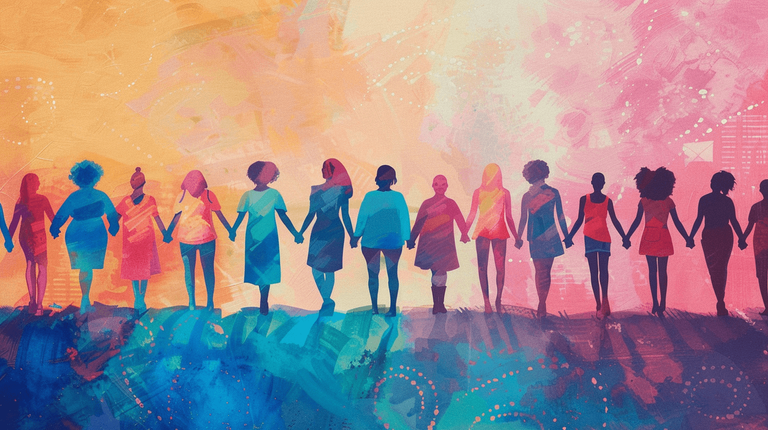
Let's talk about how being kind is actually a strength, even though some people might not see it that way. Showing empathy and compassion helps us connect with others in a powerful and meaningful manner. It's important to challenge the old ideas that being kind is a weakness. We can make a big impact by supporting each other through our challenges, highlighting acts of kindness in our communities, and showing that being open and caring matters.
This can help create more inclusive communities and inspire others to be kind as well. To make a real change, we need to value genuine kindness, appreciate empathy and compassion, and be okay with being vulnerable. When we focus on personal growth and resilience, it becomes easier to be kind and creates a more supportive community for everyone.
Section 3: Influences on Our Views of Kindness
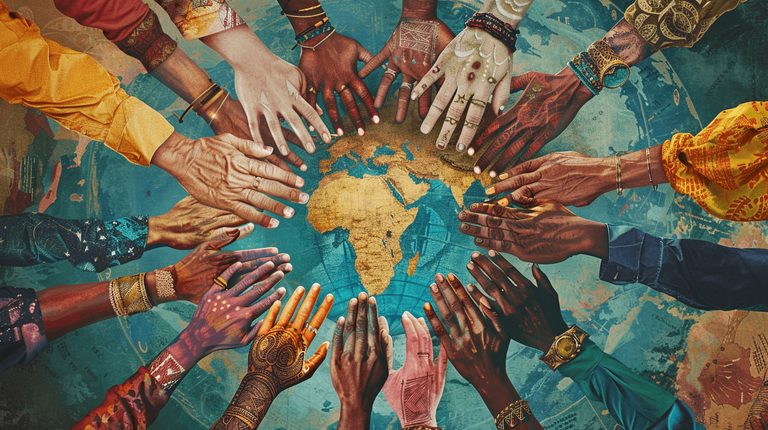
Our cultural values greatly influence how we express kindness. In cultures that focus on personal happiness and individuality, kindness is often linked to personal happiness. On the other hand, in cultures that emphasize unity and interdependence, kindness is seen as a natural expression of unity rather than personal happiness.
Religions: Sending Mixed Messages
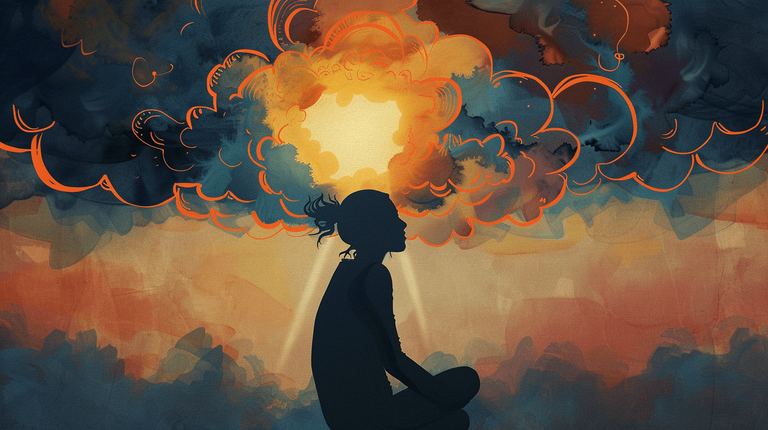
When it comes to religions, while they often talk about kindness and compassion, they can also promote judgment or favoritism towards specific groups. This sometimes limits how kindness is practiced universally. While religion can inspire acts of kindness, it may also unintentionally lead to exclusion or judgment.
Traditions: Kindness or Duty?
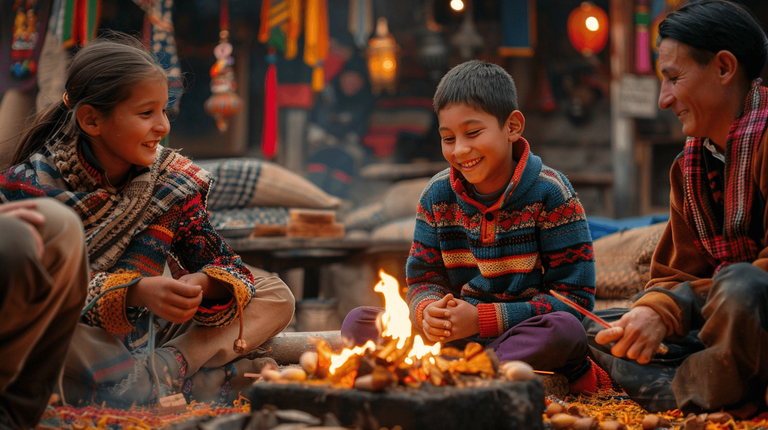
Traditions also play a role in shaping our views on kindness. Some traditions require acts of kindness, but these actions may not always stem from genuine compassion. They might be carried out as a duty rather than out of a sincere desire to help, which can diminish the sincerity of the kindness shown. It's essential to promote traditions that foster genuine care and empathy to cultivate a more compassionate society.
These are just a few of the many obstacles that can hinder kindness towards others. Whatever the obstacle may be, through conversations and by learning about differing views and traditions, we can break down some of the walls and misunderstandings, creating a kinder future for everyone.
Conclusion

- Key Points:
- We explored various obstacles that hinder our kindness, such as fears, societal expectations, cultural norms, and conflicting religious teachings.
- Understanding these challenges is crucial for enhancing our compassion towards others.
- Taking Small Steps for a Big Impact:
- We can start by taking small actions to show kindness, like being more mindful, facing our fears, and performing random acts of kindness.
- These simple gestures can have a significant effect on how we treat others.
- Bringing About Collective Change:
- While significant changes may seem daunting, our individual behaviors can contribute to creating a kinder society.
- By changing ourselves, we can unite with others in advocating for empathy and mutual understanding.
- Let's Collaborate:
- Let's work together to build a better world through our actions and attitudes.
I sincerely hope that you have enjoyed taking part in this 30-day kindness challenge. I appreciate everybody that took part and hope that you will continue looking for opportunities to show kindness to both yourself and others beyond this challenge. The rewards of being kind are many and always worth the effort in the long run.
I hope to see you in the kindness community, and I always enjoy reading everybody's posts and insights. Here are some final kindness ideas to get you thinking. Remember they are just ideas; add your own or mix and match. There is no right or wrong. The only thing that matters is that you are kind when doing so.
Thank you again.
Kindness Challenge Ideas
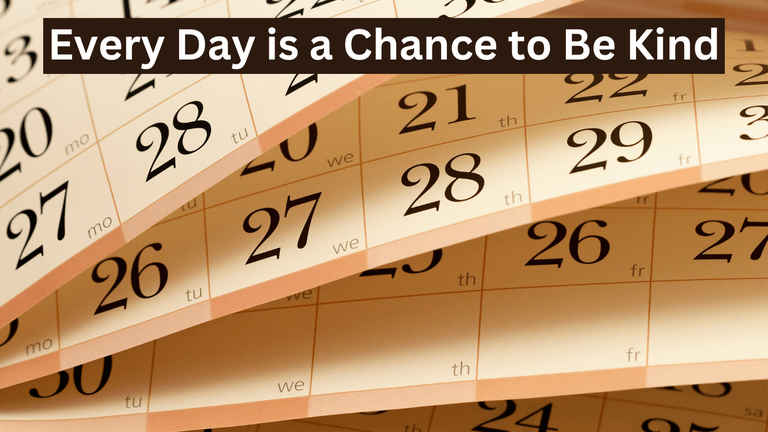
Here are some more ideas that you may draw some ideas from.
- Print out and hand out “You Matter” Cards
- Compliment someone genuinely.
- Hold the door open for someone.
- Leave a generous tip.
- Write a positive online review.
- Donate to a charity.
- Volunteer your time.
- Send a handwritten thank-you note.
- Smile at strangers.
- Bake cookies for someone.
- Make care packages for the homeless.
- Help an elderly person with technology.
Be Kind To Yourself

Here are a few ideas on how you can be kind to yourself. These are just suggestions to get you thinking. Do whatever works for you, but make sure to do something kind for yourself every day!
- Compliment someone genuinely.
- Hold the door open for someone.
- Leave a generous tip.
- Write a positive online review.
- Donate to a charity.
- Volunteer your time.
- Send a handwritten thank-you note.
- Smile at strangers.
- Bake cookies for someone.
- Make care packages for the homeless.
- Help an elderly person with technology.
- Donate unused clothes and toys.
Images created using MidJourney and Canva, I have commercial licences.
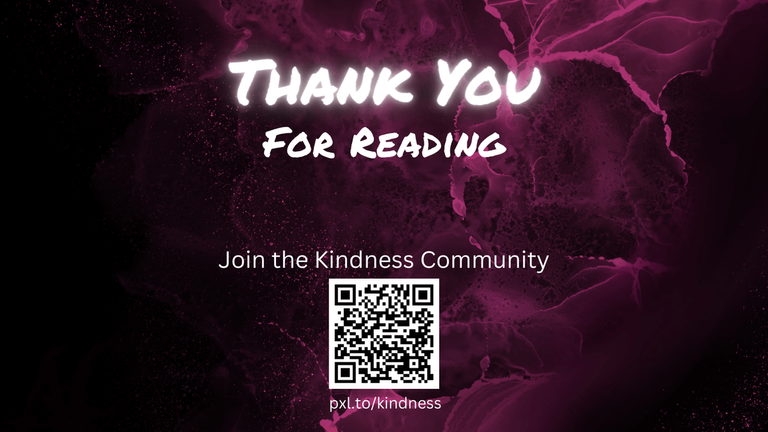
#kindness #cwh #ecency #education #pob #hivekindness #kindnesschallenge #kindnessmatters #wellness
The ripple effect does not necessarily have to emanate from those that we rendered kindness to, perhaps reason why it must be genuine and unconditional.
Stress can cause us to react badly to situations that could help us to be kind.
I have been a victim of empathy fatigue which mostly draws me back from being helpful. This has been very helpful.
Here in Nigeria, there's a fear to be kind to strangers mostly as a result of evils perpetrated in the society.
Safety should always come first. I have experienced empathy fatigue many times; it occurs when we care deeply as empaths and can take on others' pain. We must protect ourselves as we might attract narcissists. They say opposites attract, and I have found myself in relationships/marriages with narcissists. It is a truly intriguing topic.
You are a good person and must be mindful of the very real dangers; no one can fault you for prioritizing personal safety. We are of no use to others if we are not safe, right? I appreciate you, my friend.
Thank you for your kind words. This is an eye opener for us to stay vigilant and safe
I was finding it hard to understand the bystander’s effect until you gave that example
It’s so true, countless times I have just passed by people who needed help because I felt others might have already even brows or will help.
I guess I’ll have to do better
#dreemerforlife
It's common to feel unsure about helping others because of the bystander effect. Your safety matters, so it's okay to be careful before stepping in. Sometimes, jumping in might not be the safest choice, especially if your safety is on the line. Just knowing about this effect can help. Being aware of the bystander effect alone can make a big change. Remember, even small actions to help others can really matter. Thanks for sharing your thoughts!
Small actions really matter indeed
You’re welcome
Sometimes, I fall victim of being unable to help others when I'm stressed out or have a lot of responsibilities to shoulder. I then, find it hard to help others with my head muddled up, focused on settling my own problems.
But even in few of those situations, I try to do the needful. Kindness is a cycle of goodness; what goes around, comes around.
#Dreemerforlife.
Yes, for sure, what goes around comes around. When we care deeply, we can sometimes put other people's needs ahead of our own, and sometimes our safety too. It is a very easy trap to fall into, especially if you are an empath. We have to try and protect our energy to be useful and able to help others. I always compare it to being told to put our own oxygen mask on first in a plane emergency, before our children. If we get their mask on and they survive, but we pass out and are unable to get them safely to the exit then we both die right!
I know it is not apples for apples, and I hate the cliche "you can't pour from an empty cup," but it is the truth. Many thanks for the comment, friend.
I absolutely enjoyed reading this post! And I love how you went into great detail discussing the things that can prevent someone from being kind. You brought out so many things I never thought of before like compassion fatigue and empathy fatigue and how they affect someone's ability to be kind.
I will not be weary of doing good.
#dreemerforlife from #dreemport
Thank you, my friend. Yes, those things are real. It can be extremely exhausting to the point of causing great damage to our health, especially if we are empaths. We absorb others' pain and have to try not to deplete ourselves beyond a healthy point, or we will not be able to help anybody. I always appreciate your thoughts, comments, and your heart, my friend.
thank you